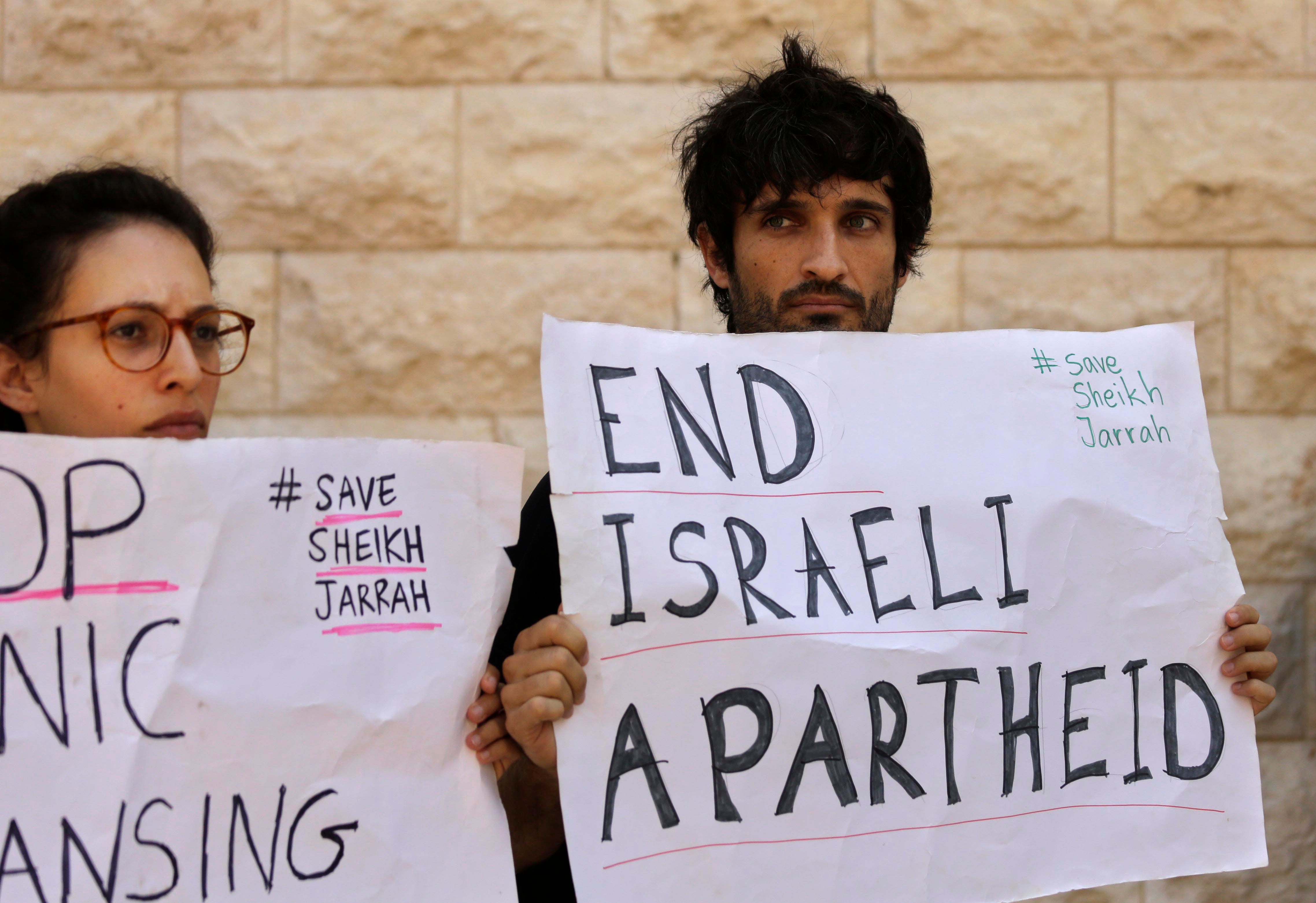Israeli court's compromise would avoid Palestinian evictions
Israel’s Supreme Court has floated a compromise that would prevent the evictions of dozens of Palestinian residents in the east Jerusalem neighborhood of Sheikh Jarrah

Israel's Supreme Court on Monday floated a compromise that would prevent the evictions of dozens of Palestinians in the east Jerusalem of Sheikh Jarrah, where attempts by Jewish settlers to expel them from their homes helped spark an 11-day war between Israel and Gaza militants in May.
The cases examined Monday involve four Palestinian families numbering a total of about 70 people.
Lower Israeli courts have approved the evictions of the four families. They ruled that their houses were built on land owned by Jews before Israel was established in 1948.
But weighing a last-ditch appeal from the residents, the court suggested a compromise that would give them “protected” status.
The deal would protect them from eviction for many years, but leave the question of legal ownership unanswered, said Ahmad Amara, a consultant to the residents' legal team.
He said the court gave the sides one week to respond.
The Supreme Court had been scheduled to issue a ruling in May, but it delayed its decision after the attorney general requested more time to consider the cases.
The threatened evictions fueled protests and clashes in the run-up to the war and pose a test for Israel’s new governing coalition, which includes three pro-settlement parties and a small Islamist faction. For the sake of unity, the government has tried to sideline Palestinian issues to avoid internal divisions.
Weeks of unrest — highlighted by heavy-handed Israeli police tactics against residents and demonstrators who supported them — captured international attention ahead of the 11-day Israel-Hamas war in May. A cease-fire took effect May 21, but the long-running campaign by Jewish settlers to evict dozens of Palestinian families has continued.
The settlers have been waging a decades-long campaign to evict the families from densely populated Palestinian neighborhoods just outside the walls of the Old City, in one of the most sensitive parts of east Jerusalem.
The settlers say the homes are built on land that was owned by Jews prior to the 1948 war surrounding Israel’s creation. Israeli law allows Jews to reclaim such property, a right denied to Palestinians who lost lands and homes in the same conflict.
Jordan controlled east Jerusalem from 1948 to 1967. The families, who were made refugees during the 1948 war, say that Jordanian authorities offered them their homes in exchange for giving up their refugee status.
Things changed after Israel captured east Jerusalem, along with the West Bank and Gaza, in the 1967 Mideast war, and annexed it in a move not recognized internationally. The Palestinians want all three territories for their future state and view east Jerusalem as their capital.
In 1972, settler groups told the families that they were trespassing on Jewish-owned land. That was the start of a long legal battle that in recent months has culminated with eviction orders against 36 families in Sheikh Jarrah and two other east Jerusalem neighborhoods.
Israeli rights groups say other families are also vulnerable, estimating that more than 1,000 Palestinians are at risk of being evicted.